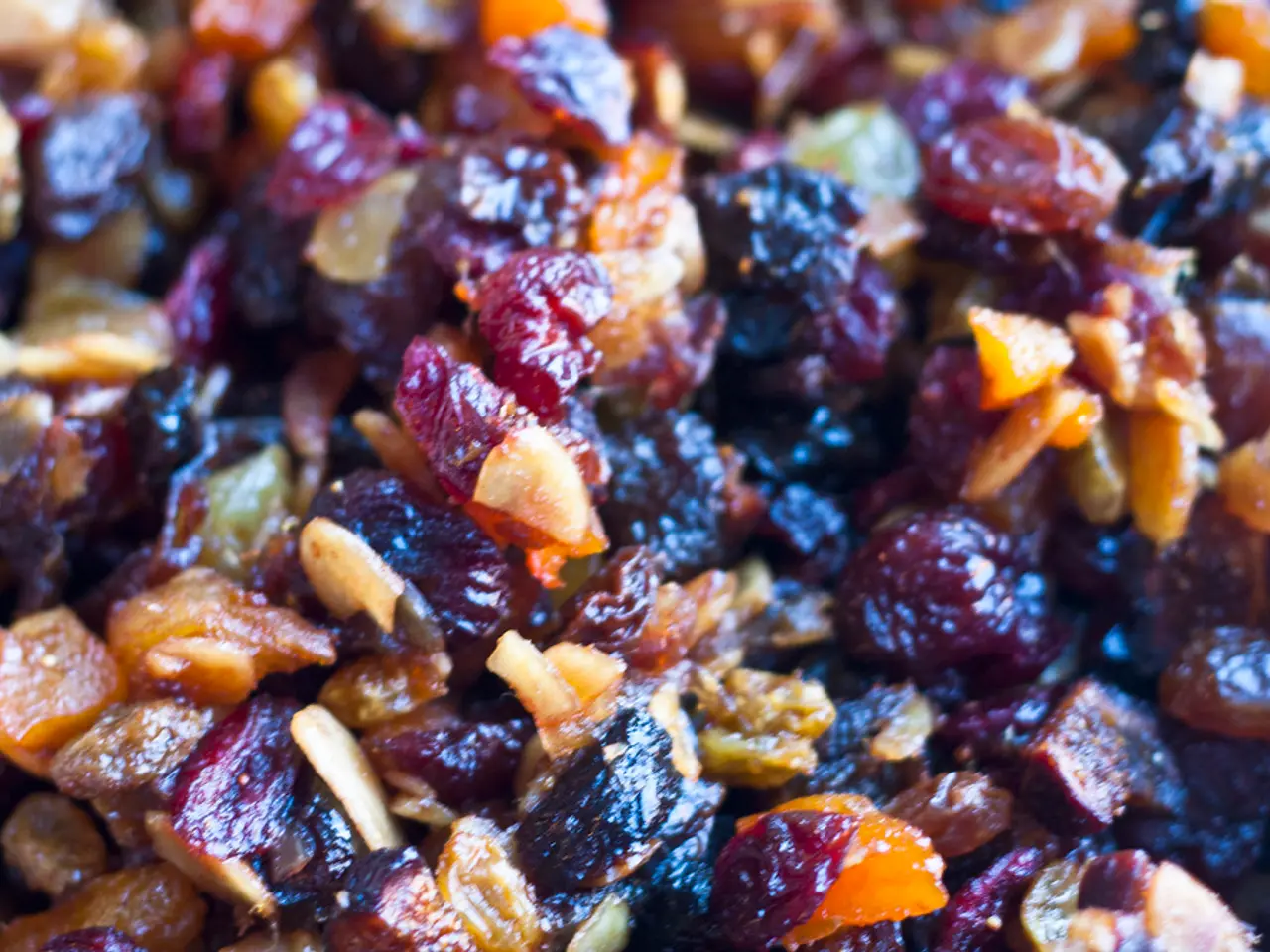Watermelons offer a delightful taste and notable health benefits
Watermelon, a summer staple, offers more than just a refreshing treat on hot days. This juicy, vibrant fruit is packed with essential nutrients and bioactive compounds that can contribute to a healthier lifestyle.
For starters, watermelon boasts significant benefits for heart health. Consuming this succulent fruit provides improved blood vessel function, thanks to compounds in watermelon juice that support endothelial function, particularly during blood sugar spikes. This improvement is due to an increase in nitric oxide production, which relaxes vascular smooth muscle and enhances blood flow [1][2][3].
Regular intake of watermelon or its extract has also been shown to lower blood pressure in overweight and pre-hypertensive individuals, as well as improve vascular tone [3]. Furthermore, watermelon's antioxidant and anti-inflammatory properties, thanks to lycopene and other carotenoids, help reduce oxidative stress and inflammation, key factors in cardiovascular disease risk [1][3].
Moreover, watermelon's nutrient-rich profile supports overall body condition. Composed mostly of water (91-92%), watermelon aids in hydration, helps flush toxins, and reduces bloating through its potassium and magnesium content [4].
L-citrulline found in watermelon helps reduce muscle soreness and improves exercise recovery, while vitamin C supports tissue repair and potassium prevents muscle cramps [3][4]. Watermelon also acts as a natural diuretic and potassium source, helping to cleanse the kidneys and prevent stone formation [4].
Lycopene in watermelon might reduce nerve cell damage and improve cognitive function, contributing to the regulation of nerve health [5].
Incorporating watermelon into your daily diet can be done through various recipes such as salads, smoothies, juice, desserts, and snacks. This versatile fruit is not only refreshing but also rich in vitamins, fiber, and antioxidants such as lycopene, L-citrulline, and vitamin C.
For those aiming to improve their diet, lower blood sugar levels, and reduce saturated fat intake, watermelon is particularly beneficial. Its high water content, combined with its low calorie count, makes it an ideal food for hydration during hot weather.
It's important to note that these benefits are particularly significant for people with diabetes or those at risk of cardiovascular diseases.
In summary, regular watermelon consumption promotes cardiovascular health by improving vascular function, lowering blood pressure, and supplying antioxidants. Moreover, it aids hydration, exercise recovery, kidney health, and nerve function. Embrace the summer with watermelon, a refreshing and nutritious superfood that can have a positive impact on your health.
References: [1] https://www.ncbi.nlm.nih.gov/pmc/articles/PMC5425781/ [2] https://www.ncbi.nlm.nih.gov/pmc/articles/PMC6053036/ [3] https://www.ncbi.nlm.nih.gov/pmc/articles/PMC5773602/ [4] https://www.ncbi.nlm.nih.gov/pmc/articles/PMC5773604/ [5] https://www.ncbi.nlm.nih.gov/pmc/articles/PMC6011220/
- The nutrient-rich profile of watermelon, including its skin-care benefits due to lycopene, makes it a valuable addition to any health-and-wellness plan.
- For workplace-wellness enthusiasts seeking to maintain a healthy diet, incorporating watermelon into their meals and snacks can provide essential nutrition and fitness-and-exercise recovery benefits, thanks to L-citrulline.
- Watermelon's antioxidant properties, when coupled with a balanced diet and regular exercise, can contribute to reducing inflammation and oxidative stress in the body, promoting overall health and wellness.
- To support a healthy-diets approach focused on removing saturated fats and regulating blood sugar levels, incorporating watermelon, with its high water content and low-calorie count, can be a delicious and refreshing choice.




